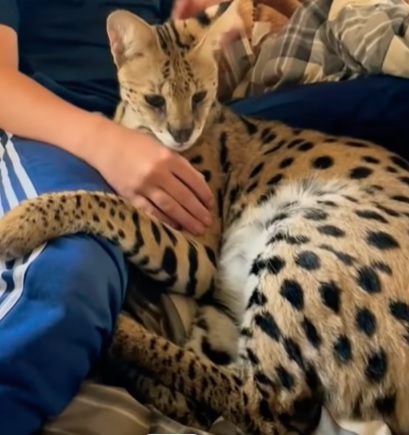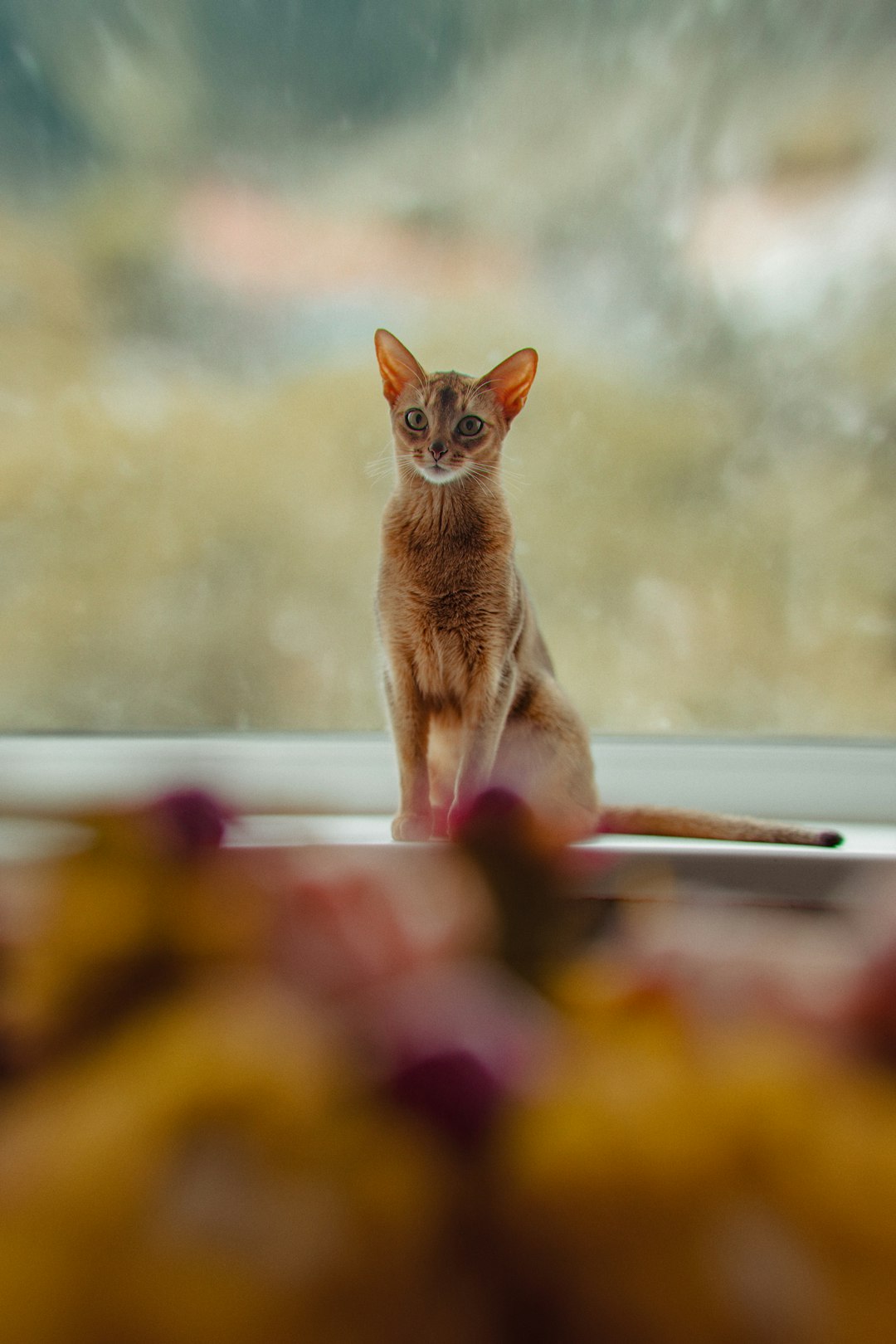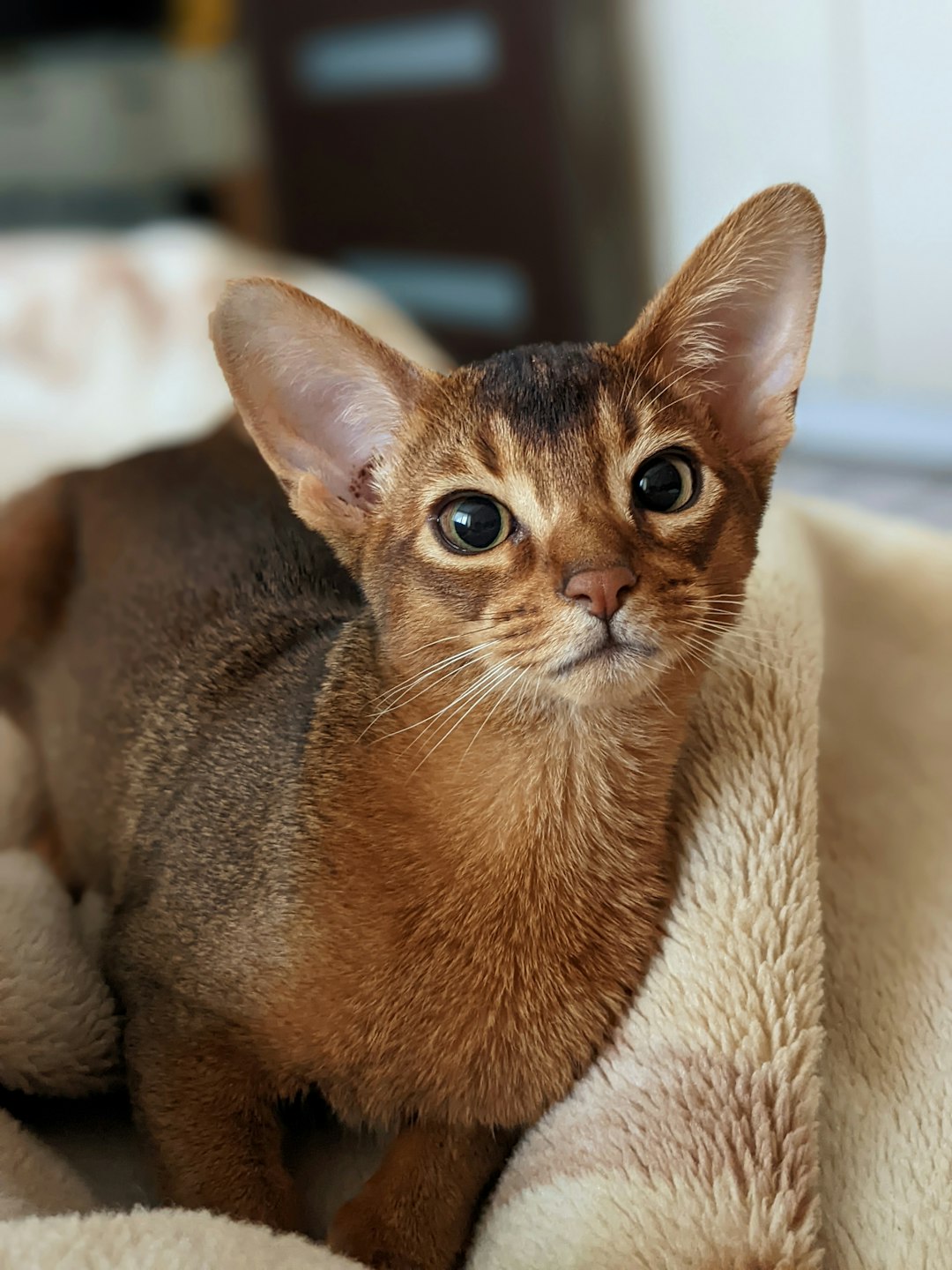Curious about the enchanting Savannah Cat? This hybrid breed, a captivating blend of domestic and serval lineage, showcases a lively spirit that mirrors its wild ancestry. As you delve into the world of Savannah Cats, you’ll discover their striking physical features, energetic personality traits, and vital socialization needs. Understanding these unique characteristics is essential for anyone considering welcoming a Savannah Cat into their home, as their care requires a dedicated approach tailored to their dynamic nature. Join us as we explore the facets that make this breed a fascinating companion.
Origin of the Savannah Cat Breed
The Savannah Cat is a fascinating hybrid breed that emerged in the 1980s. This unique feline results from breeding a domestic cat, specifically the Siamese or Oriental Shorthair, with the serval, a wild African cat. The goal was to create a cat that possessed the exotic appearance of the serval while maintaining the friendly disposition of a domestic cat.
Key points about the origin of the Savannah Cat include:
- First Generation: The first Savannah Cat was born in 1986, showcasing distinct traits inherited from both parents.
- Hybrid Classification: The breed is classified by its generation—F1 (first generation) to F7 (seventh generation)—with F1 being the closest to the serval.
- Recognition: In 2001, TICA (The International Cat Association) recognized the Savannah Cat, which helped increase its popularity among cat enthusiasts.
The Savannah Cat offers a blend of wild elegance and domestic charm, making it a delightful addition to many households. Its ancestry not only influences its stunning appearance but also its spirited personality, paving the way for an engaging companion.
Physical Characteristics of Savannah Cats
The Savannah Cat is a striking breed that combines the elegance of domestic cats with the exotic appearance of their wild ancestors, particularly the serval. Here are some key physical traits that define this unique breed:
Coat: The coat of a Savannah Cat features a soft, luxurious feel with a pattern of spots and marbling, resembling that of a wild feline. Color variations include:
- Brown spotted
- Silver spotted
- Black and black smoke
Size: Savannah Cats come in varying sizes, depending on their generation:
- F1 (first-generation) can weigh between 12-25 pounds
- F2 may weigh 10-20 pounds
- F3 and beyond typically weigh around 8-15 pounds
Ears: Prominently large and slightly rounded, their ears give the Savannah Cat a wild and alert appearance. These ears sit high on the head, enhancing their keen sense of hearing.
Eyes: Their large, almond-shaped eyes are often golden or green, contributing to their exotic look.
The combination of these physical traits makes the Savannah Cat not just beautiful but also unique in character, inviting admiration wherever they go.
Understanding Their Wild Ancestry
The Savannah Cat is a unique hybrid breed that boasts a fascinating lineage, stemming from the crossing of a domestic cat and a serval, a wild African cat. This wild ancestry influences various aspects of the Savannah Cat, particularly its behavior and appearance. Here’s a closer look at how their wild heritage shapes them:
Wild Instincts: Savannah Cats retain many of the hunting instincts their serval ancestors possessed, making them playful and curious. They thrive when given opportunities to explore their environment.
Physical Attributes: These cats often exhibit striking features inherited from the serval, including:
- Large Ears: Enhanced hearing ability
- Long Legs: Excellent for jumping and running
- Spotted Coat: A beautiful aesthetic reminiscent of their wild heritage
Temperament: While affectionate and loyal, the Savannah Cat may exhibit behaviors aligned with its wild ancestry, such as:
- Exploratory Nature: Regularly seeks stimulation and challenges.
- Social Dynamics: They often interact playfully, mimicking natural behaviors.
Understanding their wild ancestry is crucial for prospective owners to provide an enriching environment that caters to the Savannah Cat’s unique needs.
Personality Traits of Savannah Cats
The Savannah Cat is renowned for its distinctive personality, blending traits from both domestic and wild origins. Here are some key personality traits that define this captivating breed:
Adventurous: Savannah Cats possess a playful and curious nature. They thrive on exploration and enjoy new experiences, making them perfect companions for active households.
Affectionate & Social: Despite their wild ancestry, Savannah Cats are known to form strong bonds with their humans. They seek love and attention, often following their owners around the house.
Intelligent & Trainable: These cats exhibit high intelligence, allowing for easy training. Owners can teach tricks, commands, and even leash training, enriching the Savannah Cat’s life.
Vocal & Communicative: Expect your Savannah Cat to be quite vocal. They use various sounds to express their needs and desires, creating a dynamic interaction with their owners.
Energetic: With a high energy level, Savannah Cats require plenty of playtime and mental stimulation to keep them happy and healthy.
In summary, the Savannah Cat combines playfulness, intelligence, and affection, making it a fascinating addition to any family.
Socialization Needs of Savannah Cats
Savannah Cats possess an adventurous spirit and a strong desire for interaction, making socialization crucial for their well-being. Understanding their socialization needs will help you foster a happy and balanced environment for your pet. Here are key aspects to consider:
Early Introduction: Start socializing your Savannah Cat as a kitten. Gradual exposure to various environments, people, and other pets helps them develop confidence.
Positive Experiences: Introduce new experiences positively. Reward your Savannah Cat with treats and praise to create a positive association with unfamiliar situations.
Regular Interaction: Savannah Cats thrive on social interactions. Engage them with family members and friends to prevent them from becoming overly attached to one person.
Playmates: Consider having multiple pets. Savannah Cats often enjoy the company of other animals, particularly if they’re playful and energetic.
Supervised Outings: Take your Savannah Cat outside on a harness. This experience not only satisfies their curiosity but also helps with socialization.
By focusing on these socialization strategies, you can help your Savannah Cat develop into a well-adjusted and sociable companion.
Exercise and Activity Requirements
Savannah Cats are known for their energetic and playful nature, stemming from their wild ancestry. To keep your Savannah Cat healthy and happy, you must provide ample exercise and mental stimulation. Here’s what you need to know:
Daily Playtime: Aim for at least 1-2 hours of active play each day. Use interactive toys, feather wands, or laser pointers to engage them.
Vertical Space: Savannah Cats love to climb! Consider investing in cat trees or shelves to satisfy their natural instincts.
Variety of Activities: Rotate toys regularly to maintain your cat’s interest. Incorporate puzzle feeders for mental challenges.
Outdoor Exploration: If safe and appropriate, allow supervised outdoor time. A cat leash or enclosed outdoor space can offer enriching experiences.
Social Interaction: Spend quality time with your Savannah Cat through play and bonding to strengthen your relationship.
By meeting these exercise requirements, you ensure your Savannah Cat stays physically fit and mentally stimulated, enhancing their overall well-being.
Caring for Your Savannah Cat
Caring for a Savannah Cat requires a blend of attention, love, and understanding of their unique needs. These hybrid cats thrive in an environment that acknowledges their wild ancestry. Here are some essential care tips to keep your Savannah Cat happy and healthy:
Diet:
- Feed high-quality, protein-rich food.
- Offer a mix of wet and dry food to maintain hydration.
Grooming:
- Regularly brush your Savannah Cat to reduce shedding.
- Bathe them as needed, but not too frequently to avoid skin issues.
Mental Stimulation:
- Provide interactive toys to stimulate their minds.
- Consider puzzle feeders to engage their natural hunting instincts.
Social Interaction:
- Spend time bonding with your Savannah Cat. They often seek companionship and can become bored if left alone for too long.
Regular Vet Check-ups:
- Schedule routine veterinary appointments for vaccinations and health checks.
By meeting these needs, you’ll help your Savannah Cat thrive and enjoy a joyful life as a cherished member of your family.
Common Health Considerations for Savannah Cats
Savannah cats, renowned for their striking appearance and dynamic behavior, require attentive care to maintain their health. While these hybrid felines typically enjoy a robust constitution, understanding their specific health considerations is essential. Here are some common health issues associated with the Savannah cat:
Hypertrophic Cardiomyopathy (HCM):
- A prevalent heart condition in cats, it can lead to heart failure. Regular veterinary check-ups help in early detection.
Hip Dysplasia:
- Particularly in larger Savannah cats, this genetic condition affects the hip joint and can lead to arthritis.
Gastrointestinal Issues:
- Savannah cats may experience digestive problems; a high-quality diet tailored to their needs can mitigate this risk.
Dental Health:
- Periodontal disease is common; ensure regular dental care practices to prevent complications.
To maximize your Savannah cat’s lifespan and well-being, consider:
- Consistent veterinary visits
- A balanced diet rich in nutrients
- Regular exercise to maintain a healthy weight
By staying aware of these health considerations and providing proactive care, you can ensure your Savannah cat thrives in a vibrant environment.
Frequently Asked Questions
What is a Savannah cat and how is it different from regular domestic cats?
A Savannah cat is a hybrid breed that is a cross between a domestic cat and a Serval, a wild African cat known for its striking appearance and unique personality. The difference lies in their wild ancestry, which contributes to their distinctive physical traits like long legs, large ears, and spotted coats. They often exhibit adventurous behaviors and a lower threshold for boredom compared to regular domestic cats, making them more active and playful.
What are the personality traits commonly associated with Savannah cats?
Savannah cats are known for their highly spirited and energetic personality. They are playful, intelligent, and social animals that form strong bonds with their human companions. They require mental stimulation and physical activity to keep them engaged. Their curious nature might lead them to explore new environments and interact with other pets or children. Their affectionate demeanor can make them loving family pets, but they also thrive on challenging interactions like games and puzzles.
Do Savannah cats require special care to maintain their well-being?
Yes, Savannah cats do have specific care requirements due to their hybrid nature. They need ample space to roam and play, so a home with room to explore is preferable. Regular exercise is essential, and owners should provide toys and activities that stimulate their minds, such as climbing structures and interactive games. Additionally, Savannahs are often more social than typical domestic cats, so they may benefit from the companionship of other pets or frequent human interaction to prevent loneliness.
Are Savannah cats legal to own as pets?
The legality of owning a Savannah cat varies by location and depends on the generation of the cat. F1 and F2 Savannah cats, which are closer to their Serval ancestry, may be restricted or prohibited in some areas. It’s important to check local laws and regulations before acquiring one. In many places, F3 and later generations are permitted as they exhibit more domestic characteristics. Responsible breeders can provide guidance on the legalities and help ensure the well-being and socialization of these unique animals.



